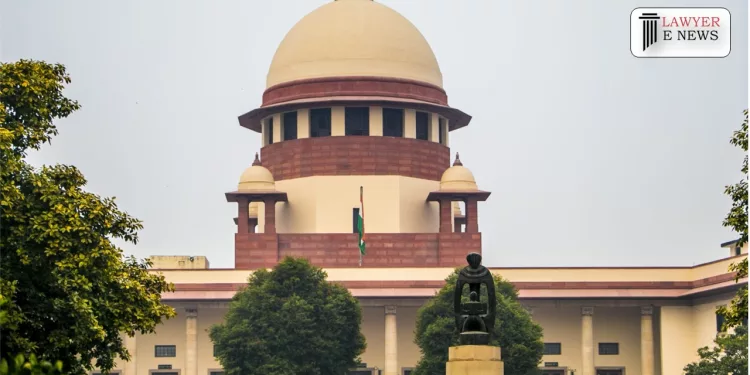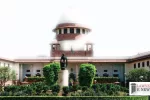Supreme Court Allows Apprehending Absconding Accused in GST Evasion Case; Grants One Last Opportunity for Cooperation

In a significant ruling, the Supreme Court of India granted permission for the apprehension of absconding accused individuals involved in a Goods and Service Tax (GST) evasion case. The apex court allowed the prosecution to proceed further with the inquiry against the accused, who had failed to cooperate with the authorities for the past five years.
The case, titled “Criminal Appeal Nos. [numbers] of 2023,” arose from Special Leave Petition (Crl.) No. 4212-4213 of 2019, filed by The State of Gujarat against Choodamani Parmeshwaran Iyer & Anr. The respondents were summoned under Section 145 of the Central Excise Act, 1944, as applied to the service tax under the Finance Act, 1994, and the Central Goods and Service Tax Act, 2017. The summons were issued to interrogate the accused in connection with an inquiry into alleged evasion of GST liability by M/s. Iyer Enterprise Mundra Kutch.
The court noted that the respondents had not been in touch with their counsel for the past six months, leading to a lack of assistance to the court. The prosecution argued that as many as 14 summons were issued to one of the respondents, but the accused only appeared for interrogation once, after which they abstained from cooperating with the authorities.
The court examined the power of arrest under Section 69(1) of the CGST Act, 2017, which allows for arrest when there are reasons to believe that a person committed specified offenses punishable under Section 132(1) of the Act. The court cited the case of Union of India Vs. Padam Narain Aggarwal (2008) 13 SCC 305, stating that statutory powers of arrest should be exercised based on objective facts of the offense committed.
The apex court clarified that at the stage of summons, the respondents cannot seek anticipatory bail under Section 438 of the Code of Criminal Procedure. Instead, they may seek protection through a writ application under Article 226 of the Constitution of India.
While delivering the judgment, the bench of Hon’ble Mr. Justice J.B. Pardiwala and Hon’ble Mr. Justice Prashant Kumar Mishra stated, “We are still inclined to give one more opportunity to both the respondents to appear before the authorities for the purpose of recording their statements. If the respondents fail to appear, then it shall be open for the authority concerned to proceed further in accordance with the law.”
With this verdict, the Supreme Court has allowed the prosecution to continue the inquiry against the absconding accused in the GST evasion case, providing a final chance for them to cooperate with the authorities.
Date of Decision: July 17, 2023
THE STATE OF GUJARAT ETC. vs CHOODAMANI PARMESHWARAN IYER & ANR.





